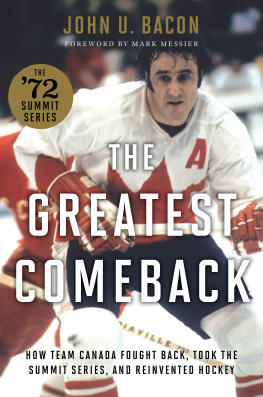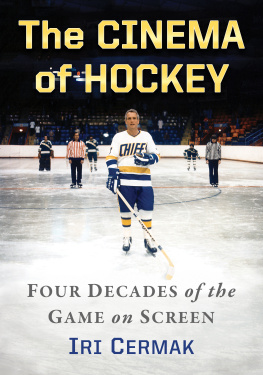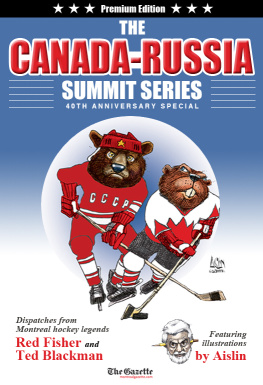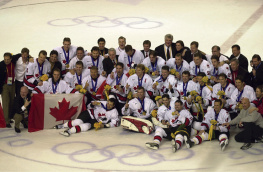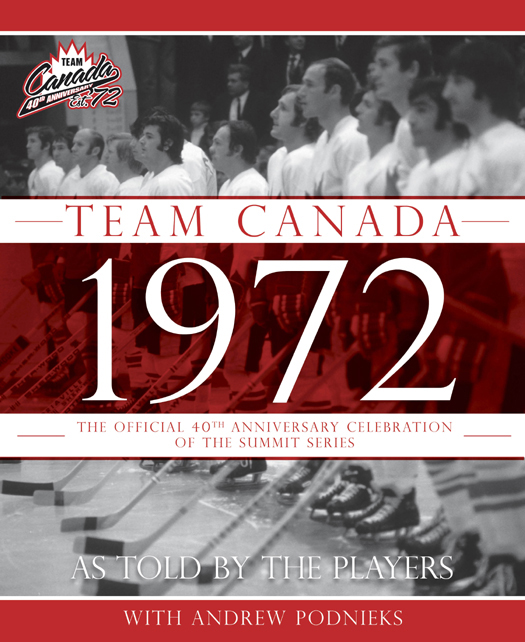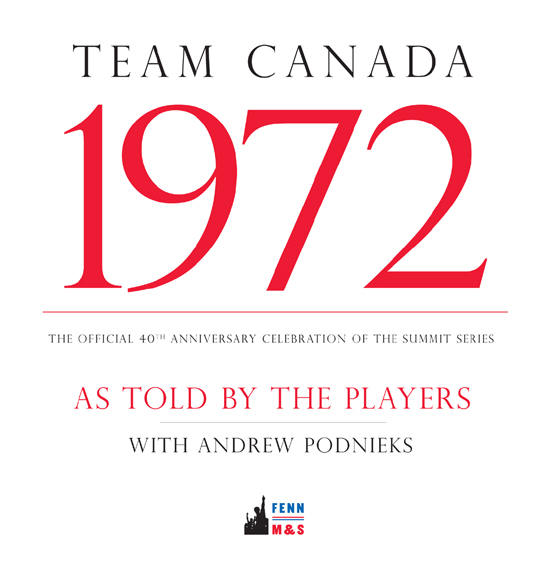Andrew Podnieks is the author of more than sixty-five books on hockey.
The following is a select list:
IIHF Guide & Record Book 2012
NHL Records Forever
Sid vs. Ovi: Natural Born Rivals
The Legend of Moe Norman: The Man with the Perfect Swing
Hockey Facts and Stats 20112012
The Year of the Bruins: Celebrating Bostons 201011 Stanley Cup Championship Season
Retired Numbers: A Celebration of NHL Excellence
Hockey Superstitions: From Playoff Beards to Lucky Socks and Crossed Sticks
Canadian Gold: 2010 Olympic Winter Games Ice Hockey Champions
Honoured Canadiens
The Complete Hockey Dictionary
World of Hockey: Celebrating a Century of the IIHF 19082008
A Canadian Saturday Night: Hockey and the Culture of a Country
Players: The Ultimate AZ Guide of Everyone Who Has Ever Played in the NHL
The Goal: Bobby Orr and the Most Famous Goal in NHL Stanley Cup History
A Day in the Life of the Maple Leafs
The NHL All-Star Game: 50 Years of the Great Tradition
The Great One: The Life and Times of Wayne Gretzky
Portraits of the Game: Classic Photographs from the Turofsky Collection at the Hockey Hall of Fame
Copyright 2012 by Team Canada 1972
All rights reserved. The use of any part of this publication reproduced, transmitted in any form or by any means, electronic, mechanical, photocopying, recording, or otherwise, or stored in a retrieval system, without the prior written consent of the publisher or, in case of photocopying or other reprographic copying, a licence from the Canadian Copyright Licensing Agency is an infringement of the copyright law.
Library and Archives Canada Cataloguing in Publication
Podnieks, Andrew
Team Canada 1972 : the official 40th anniversary celebration / Andrew Podnieks.
eISBN: 978-0-7710-7121-8
1. Canada-U.S.S.R. Hockey Series, 1972. I. Title.
GV847.7.P623 2012 796.96266 C2012-900963-6
We acknowledge the financial support of the Government of Canada through the Canada Book Fund and that of the Government of Ontario through the Ontario Media Development Corporations Ontario Book Initiative. We further acknowledge the support of the Canada Council for the Arts and the Ontario Arts Council for our publishing program.
Published simultaneously in the United States of America by McClelland & Stewart, a division of Random House of Canada Limited Ltd., P.O. Box 1030, Plattsburgh, New York 12901
Library of Congress Control Number: 2012932345
Fenn / McClelland & Stewart, a division of Random House of Canada Limited
One Toronto Street
Suite 300
Toronto, Ontario
M5C 2V6
www.mcclelland.com
v3.1
CONTENTS
CZECHOSLOVAKIAN
EXHIBITION
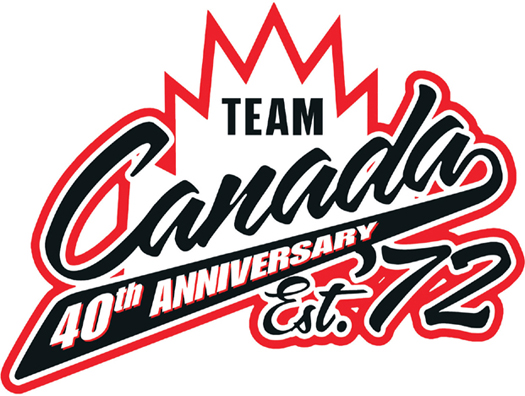
INTRODUCTION
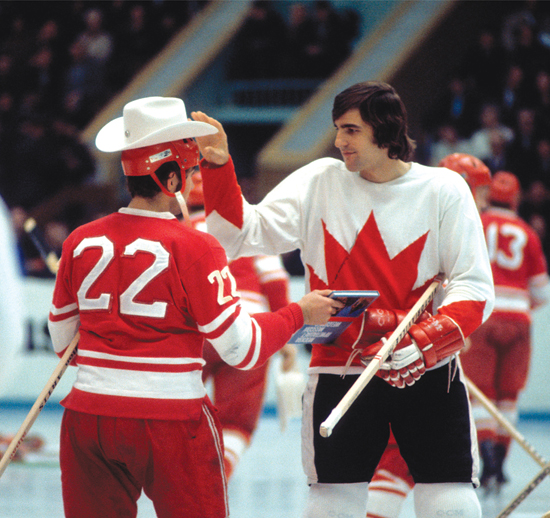
Guy Lapointe presents (right) Vyacheslav Anisin with a white Stetson during pre-game ceremonies, September 28, 1972.
W hy was the Summit Series held? Why was it such a big deal? Why, forty years later, does it continue to play a pivotal role in Canadian history, a very cornerstone of the nations sporting achievements?
To explain fully, we must go back to 1954 and earlier.
The International Ice Hockey Federation (IIHF) was established in 1908 when five European teams France, Belgium, Switzerland, Great Britain, and Bohemia (now Czechoslovakia) decided to join forces in drawing up one conclusive set of hockey rules based on the Canadian game. This version of hockey had established itself as the game of the future, usurping bandy, an outdoor winter sport played on frozen soccer fields, eleven men a side (like soccer), and using more soccer rules than hockey rules.
After 1908, European teams started competing more frequently against each other under this common set of Canadian rules, but the culmination of these efforts didnt come about until 1920, when hockey was played as part of the Summer Olympics and the two North American nations (Canada and the United States) participated in what was the first truly international hockey tournament.
Canada won the gold in 1920 and every other gold between that first event and 1954, with two exceptions: the 1933 World Championship, when it lost 21 in overtime to the United States in the gold-medal game, and the 1936 Olympics, when an early round 21 loss to Great Britain later decided the gold.
Canada was far and away the supreme hockey country. The first Olympic Winter Games took place in 1924, largely created after the success of hockey in 1920, and starting in 1930 the IIHF held an annual World Championship in years when there was no Olympics. Canadas entry in these tournaments was usually the senior amateur champion of the previous year, that is, the Allan Cup winners. This team would leave for Europe a couple months prior to the tournament to play exhibition games, promote Canadian hockey, and prepare for the international event in which it was competing.
Everything changed in an instant in 1954. That year, the Soviet Union entered its first international event, the World Championship, held in Stockholm, Sweden. No one knew anything about the team or its players, but it performed well in the early going. Canada, represented as always by a club team, also won all its games, as the East York Lyndhursts rolled merrily along in similar manner as every previous Canadian representative for thirty-four years.
The final day of the championship pitted undefeated Canada (six wins) against unbeaten Soviet Union (five wins and a tie, against Sweden). The Soviets scored the only four goals of the first period and after an early Canada goal in the second scored three more. Canada got one goal back in the third, losing 72, and the Soviets produced up to that time what was unquestionably the greatest upset in hockey history.
That score, in fact, was of such great consequence in Canada that the next year the play-by-play legend Foster Hewitt left his post during the NHL season to do radio coverage for the 1955 World Championship in Germany. The same series of events unfolded during the tournament. Canada and the Soviets each won their first seven games, setting up a gold-medal showdown on the final day. This time, a more prepared Canadian team hammered the Soviets 50 to reclaim the World Championship title, but it was now clear that Canada was no longer alone atop the hockey world.
The next several years produced high drama internationally. The Soviets won gold at the 1956 Olympics while Canada had to settle for bronze, the first time it hadnt won either gold or silver. Canada did not compete at the 1957 Worlds for political reasons but won in 1958 and 1959, only to finish third again at the 1960 Olympics in Squaw Valley, California.



